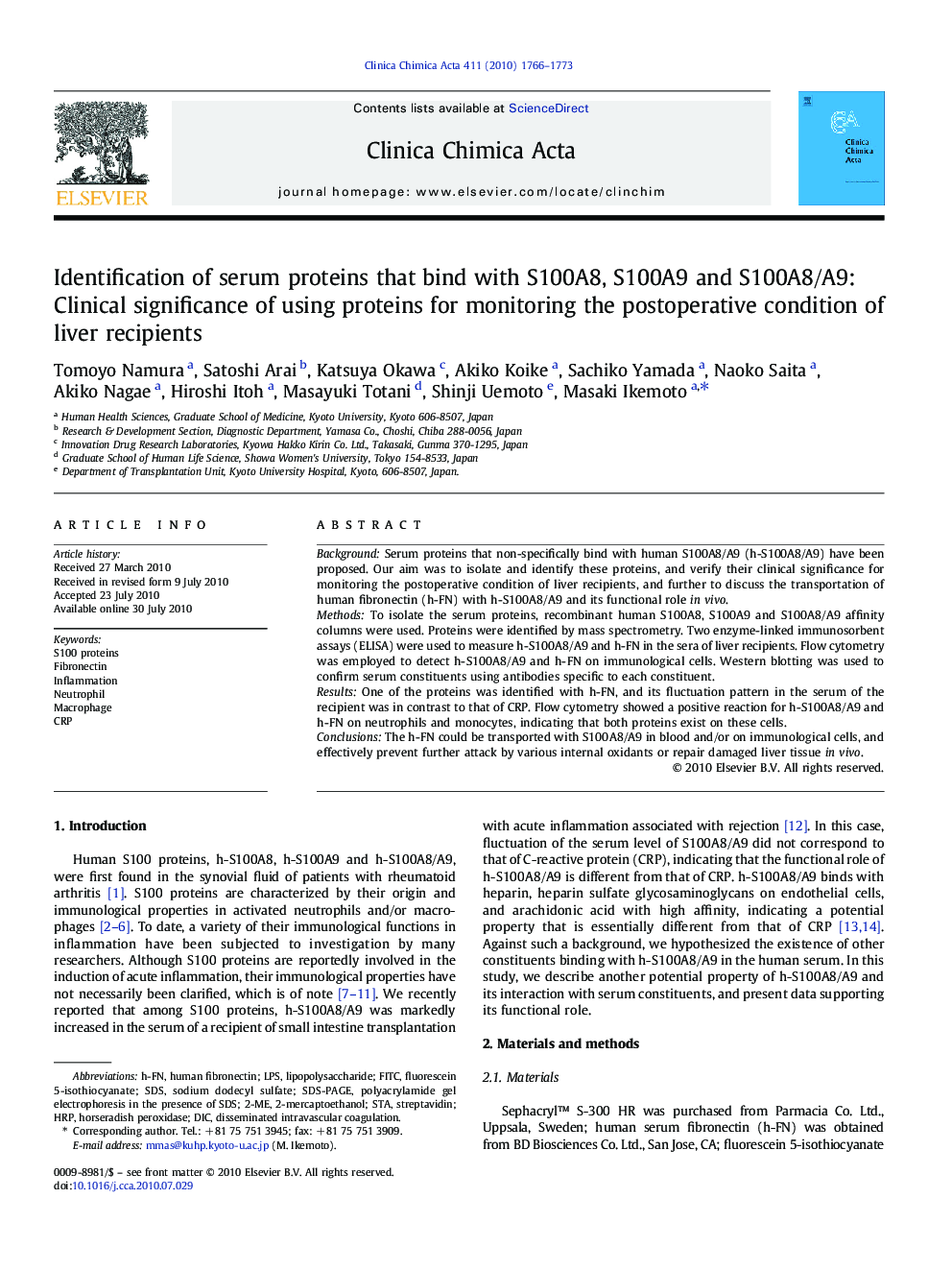| Article ID | Journal | Published Year | Pages | File Type |
|---|---|---|---|---|
| 1966743 | Clinica Chimica Acta | 2010 | 8 Pages |
BackgroundSerum proteins that non-specifically bind with human S100A8/A9 (h-S100A8/A9) have been proposed. Our aim was to isolate and identify these proteins, and verify their clinical significance for monitoring the postoperative condition of liver recipients, and further to discuss the transportation of human fibronectin (h-FN) with h-S100A8/A9 and its functional role in vivo.MethodsTo isolate the serum proteins, recombinant human S100A8, S100A9 and S100A8/A9 affinity columns were used. Proteins were identified by mass spectrometry. Two enzyme-linked immunosorbent assays (ELISA) were used to measure h-S100A8/A9 and h-FN in the sera of liver recipients. Flow cytometry was employed to detect h-S100A8/A9 and h-FN on immunological cells. Western blotting was used to confirm serum constituents using antibodies specific to each constituent.ResultsOne of the proteins was identified with h-FN, and its fluctuation pattern in the serum of the recipient was in contrast to that of CRP. Flow cytometry showed a positive reaction for h-S100A8/A9 and h-FN on neutrophils and monocytes, indicating that both proteins exist on these cells.ConclusionsThe h-FN could be transported with S100A8/A9 in blood and/or on immunological cells, and effectively prevent further attack by various internal oxidants or repair damaged liver tissue in vivo.
